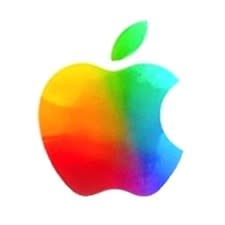Forbes argues Apple needs to make bigger acquisitions, but we disagree
tacitly argues that Apple would do well to take a page out of Facebook's playbook and start snatching up companies instead of, you know, returning money to shareholders. While Facebook recently spent $19 billion to acquire WhatsApp, Apple in stark contrast spent $14 billion buying up its own shares, effectively investing in itself.
This is apparently a no-no, the narrative goes, because it underscores Apple's position as a slow-moving company not nimble enough to keep up with the fast moving world of technology.
Think of this for a second: Apple spent $14 billion on its own stock a few weeks ago and now the stock is lower from where it was after they announced it proudly. Facebook spent $16 billion on WhatsApp (before RSUs). Which company spent its money more wisely for the long-term health of the business?
I also think Zuckerberg or [Tesla CEO Elon] Musk as Apple CEO would be highly acquisitive and not be afraid to use Apple's stock to do deals.
The article posits that Apple should tap into its ridiculously large bank account to help shore up existing deficiencies in its software and add "mobile apps beyond things like iPhoto and iMovie."
Apple needs to start playing offense.
Apple needs to start picking off strategic assets as if their life depends on it, rather than continuing on with a plodding attitude that doesn't match the speed of their competitive environment.
It's time for Apple to get aggressive.
It's an interesting take, to be sure, but one that completely ignores Apple's business model, not to mention Apple's 2013 acquisition spree.
Apple's acquisitions are strategic and surgical
A close look at Apple's acquisition history reveals that Apple's strategy in this regard is quite simple. The company primarily makes strategic acquisitions for technology or talent that either help add value to an existing product line or help lay the groundwork for upcoming products.
A few quick examples include Apple snatching up AuthenTec for its fingerprint technology, C3 Technologies for its 3D Mapping software, Emagic for GarageBand, and Siri for, well, Siri.
So while acquiring companies for lots of cash sure makes for sexy and intriguing headlines, not every proposed deal actually makes sense once you delve deeper. The ill-guided notion that Apple should have acquired Nest Labs is a perfect example.
Apple in 2013 acquired more companies than ever before
All that said, Apple in 2013 purchased over 15 companies in 2013, representing Apple's largest acquisition spree in company history.
The notion that Apple isn't taking measured steps to improve its product line is patently absurd. Just look at the plethora of apping companies Apple acquired just last year. Want more intriguing acquisitions to satisfy your palette? How about we look at Apple's March 2013 acquisition of WiFiSLAM or its November 2013 acquisition of PrimeSense.
Forbes, nonetheless, suggests that Apple might do well to acquire Dropbox. Well newsflash, ya'll, Apple actually did try and purchase Dropbox but Drew Houston and Company weren't willing to sell.
It's easy to get wrapped up in the day to day gossip of the tech world and miss the larger picture, namely that Apple makes more money than its competitors and has a strong record of setting new bars for innovation that permeate throughout the entire industry.
The iPhone 5s, for example, introduced fingerprint authorization technology to the masses. The recently unveiled Samsung Galaxy S5, surprise surprise, comes with its own fingerprint technology, albeit with a much less elegant implementation.
Now this isn't to say Apple should never make large acquisitions. Apple acquiring Tesla is of course intriguing, and Tim Cook recently said Apple wouldn't shy away from a 10-digit purchase price. Acquisitions for the sake of acquisitions, however, are patently absurd and can often result in money drains. Just look at Google's $12 billion purchase of Motorola Mobility.
Apple is the next Microsoft vs. Apple should act like the old Microsoft
At the same time that pundits warn that Apple is turning into Microsoft, other pundits seem to want Apple to turn into Microsoft of the mid-late 90s when the folks over at Redmond were snatching up companies faster than they could figure out do with them.
Here's a quick and incomplete look back at Microsoft's acquisition history.
From 1997 through 2007, Microsoft acquired a whopping 101 companies. Apple during that same timeframe purchased 21 companies.
And just how did that work out? How did each company's product lines pan out during that 11 year period?
Apple became a money making machine on the innovative strength of the iPod, iPhone, and the iPad while Microsoft found itself perpetually struggling to catch up in the mobile space.
The takeaway here is that big-time corporate acquisitions is not and has never been a surefire guarantee of success or even relevancy in the world of tech.


